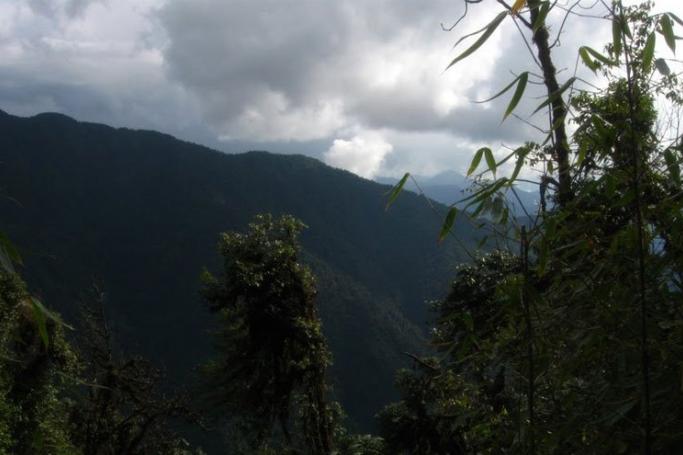Minister of Environmental Conservation and Forestry U Win Tun said Myanmar is helping to make significant gains in programmes that protect the mountain ecosystems, including sustainable methods of agriculture and tourism.
Minister U Win Tun was speaking at the Myanmar-ICIMOD Day on March 25 in Nay Pyi Taw.
The minister stressed the importance of working with partners such as the International Centre for Integrated Mountain Development or ICIMOD.
“Today’s event, Myanmar-ICIMOD Day, reflects one of our international collaborations to fulfil our endeavour, determination, and commitment to conserve biodiversity and ecosystem services as well as to support development and climate change mitigation,” he said.
The minister pointed out that approximately 42 percent of Myanmar is mountainous, and many mountain-specific issues transcend local and national boundaries requiring a broad regional approach and transboundary collaboration to find effective solutions.
“In this context, collaboration with ICIMOD provides a great opportunity to strengthen our efforts on sustainability of mountain environment as well as to address problems facing the mountain areas, which are mostly transboundary in nature,” he said.
Myanmar is a founding member of ICIMOD and has been instrumental in supporting the Centre’s mission and vision. The Ministry of Environmental Conservation and Forestry is the nodal ministry and the Department of Forest represents Myanmar in ICIMOD’s Board of Governors.
The purpose of the Myanmar-ICIMOD Day is to provide a platform for mutual learning, sharing, and networking opportunities among the national partners and to showcase works of ICIMOD’s partners in Myanmar for increased ownership and visibility. The event also provides the government partners to give an overview of their ongoing activities.
Delivering the keynote address, ICIMOD’s Director General Dr David Molden said there is immense potential in the work for mountains and people for Myanmar, and it is important for the national partners to provide critical inputs into ICIMOD’s programmes.
“I am pleased with the progress, but not yet fully satisfied, that’s why we must connect with partners and deepen our relation in Myanmar,” he said. “We seek guidance from you on how to deepen our engagement and ensure that we are responding to your priorities.”
Dr Molden pointed out that ICIMOD has been expanding its activities in Myanmar in the recent years. The Myanmar government hosted the annual Board Meeting in 2012 where ICIMOD’s Strategic Framework and the Medium Term Action Plan were endorsed.
Today, there are five major programmes of cooperation between ICIMOD and Myanmar. These include: Landscape Initiative for Far-Eastern Himalayas [Hi-LIFE Initiative], Rural Livelihoods and Climate Change Adaptation in the Himalayas [Himalica], Livelihoods and Ecosystem Services in the Himalayas [AdaptHimal], REDD+, and capacity building on remote sensing. In addition, ICIMOD also supported the development of Myanmar Ecotourism Policy and Management Strategy.
The Myanmar-ICIMOD Day was preceded by a half-day programme in Yangon that brought together diverse non-government actors including NGOs, development partners and the private sector.
With the theme “Introducing ICIMOD: Strengthening Partnerships in Myanmar,” the programme held a day earlier on March 24 at the Park Royal Hotel was attended by the ambassadors of ICIMOD member countries including India and Pakistan; representatives of development agencies like UNDP, UN-Habitat, and the European Union; non-government actors like EcoDev, Centre for People and Forest, and Myanmar Institute for Integrated Development; and private sector agencies such as the Myanmar Tourism Federation and the Union of Myanmar Federation of Chambers of Commerce and Industry.
You are viewing the old site.
Please update your bookmark to https://eng.mizzima.com.
Mizzima Weekly Magazine Issue...
14 December 2023
New UK Burma sanctions welcome...
13 December 2023
Spring Revolution Daily News f...
13 December 2023
Spring Revolution Daily News f...
12 December 2023
Spring Revolution Daily News f...
11 December 2023
Spring Revolution Daily News f...
08 December 2023
Spring Revolution Daily News f...
07 December 2023
Diaspora journalists increasin...
07 December 2023
Third session of Hluttaws is scheduled to start in the first week of February 2021












